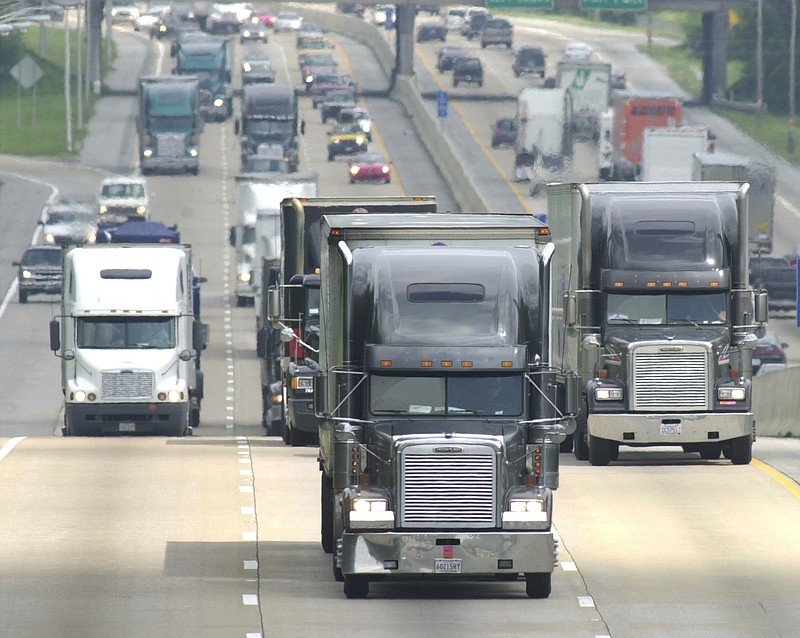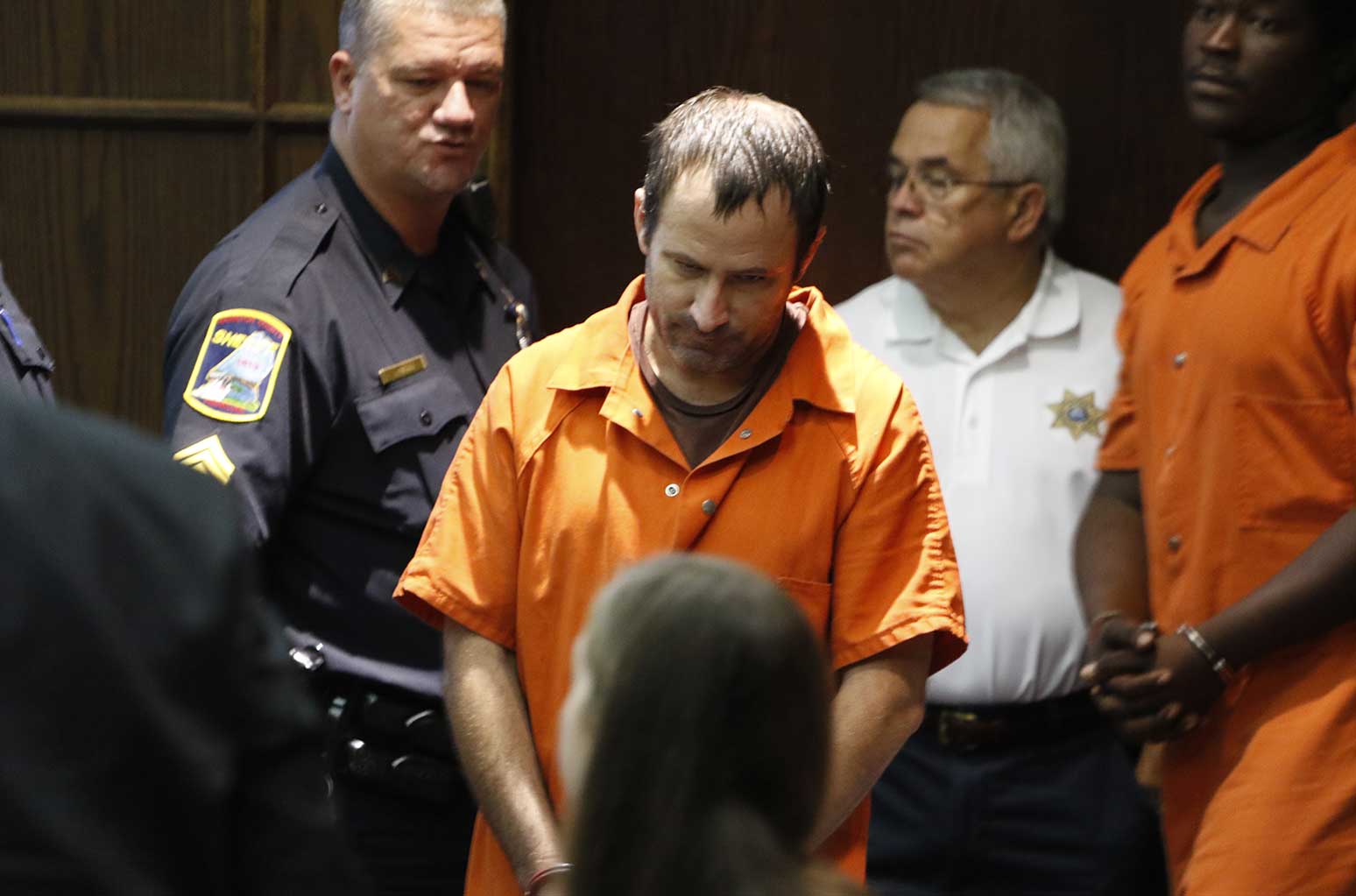Chattanooga is at the crossroads of a perfect storm for more fatal truck crashes like the one in June that left six dead and six injured in a colossal and fiery nine-vehicle nightmare.
In excellently reported stories last Sunday and Monday, Times Free Press reporters Shelly Bradbury and Alex Green laid out how the tragedy came to occur amid a complex mix of factors found in almost every city and in almost every truck: The pressure to drive farther and faster, our aging and crowded interstate system, the nation's growing need to move freight and the growing shortage of truck drivers.
Add to this already volatile set of circumstances just one more wild card - like the impaired trucker Ben Brewer of Kentucky who now faces six counts of vehicular homicide, four counts of reckless aggravated assault, driving under the influence of narcotics, speeding and making false reports about his duty status - and you have lightning-flash catastrophe.
Brewer's tractor-trailer going 77 mph slammed into eight stopped or slowed vehicles in a construction zone on I-75 north near the Ooltewah exit.
Such catastrophe happens far more often than we think and hope. In 2013, 289 people died in crashes with large trucks in Tennessee and Georgia alone. Over 10 years we tallied 3,405 deaths in our two states. Nationally, more than 48,000 people died in a decade of fatal truck crashes.
In Chattanooga, we have more multipliers: Three major interstates run through our city. In fact, more truck traffic passes through Chattanooga than any other metro area in the United States. Let's put it another way - more truck traffic passes through our city of tortured roadway geography than passes through any geography of any other metro area.
We're also a town with at least two of the top 25 truck carrier companies in the United States headquartered here.
As Brewer's case winds through the courts, the National Transportation Safety Board continues to investigate his crash for broader, national trucking and transportation implications. In the very rare instances when the NTSB decides to investigate a traffic accident, it typically sends five investigators. They sent 11 to Chattanooga - the town at the center of major interstate crossroads where I-75, I-24 and I-59 all come together.
The fact that Brewer was behind the wheel of a truck at all is testament to the squeeze trucking companies are in for drivers and dollars.
With an average driver age of 49, the trucking industry is losing two drivers to retirement for every one it gains. Trucking experts say that by the end of this year, the industry will be short 48,000 drivers. And when trucking companies find themselves in a wage war to attract drivers, the competition is especially harsh for small firms like Cool Runnings Express - the company with three trucks that drug-tested Brewer, hired him and put him on the road all on the same day. After all, only moving trucks make money.
According to the Federal Motor Carrier Safety Administration, Cool Runnings has now had two serious crashes in the last two years, and of its 19 random truck inspections over the last 24 months, inspectors found problems in a dozen of those oversight reviews. Following the crash in Chattanooga, Cool Runnings now faces three lawsuits for a combined $33.5 million. Yet no amount of money will bring back six dead people or calm the nightmares of the six who were injured or ease the horror of still another six people who walked away without physical damage.
On the day he was hired, June 22, Brewer had to delay leaving Kentucky twice to have repairs made on his truck. He reached Florida on June 24 after being on-duty for about 45 consecutive hours - well beyond the 14-hour limit set by the Federal Motor Carrier Safety Administration. About an hour away from his drop-off point, he sideswiped a delivery truck he was trying to pass. Florida Highway Patrol officers wrote him a ticket for $166 and sent him along his way. By the time he arrived at 4:30 p.m. and logged himself as 'off duty,' he'd been working for 50 hours straight.
He took a 12-hour break, faked his paper logbooks to make it look like he was following federal regulations, then started the 769-mile trip back to Kentucky. About 15 hours along the journey, Brewer reached Chattanooga and, at full speed, plowed into eight stopped or slowed cars in a highway construction zone. The truck did not come to a stop for another 453 feet after the impact.
A truck safety advocate noted to our reporters that once or twice a year, a plane crash killing 200 or 300 people will lead national and international news for weeks, yet in 2013, 333 people were killed in truck-involved crashes every month in the U.S. and nobody seemed to notice.
We're noticing now. But solutions seem more elusive than the mounting deaths. Adequate funding for highway widening and maintenance seems permanently stalled both at state and national levels. A proposed 200-mile loop around Chattanooga faces similar financial roadblocks. Technology could help if trucks were outfitted to sound alarms when a trucker drifts between lanes or to send warnings to a trucker's home terminal if he seems fatigued, or to shut down the engine if a driver exceeds hours of service. But that's also expensive.
In the end, it really is all about money, even money we're already spending. We all do want our stuff, after all. And we want it now. That's why so many trucks are on the road. Some 70 percent of all goods shipped within any U.S. market are moving around the country by truck.
And a whole, whole lot of it is coming right through Chattanooga - right through the city that now wants answers.

